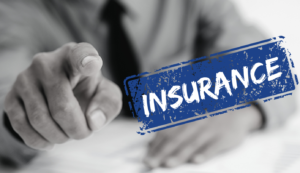Here is part 2 of our series, “Basic Insurance Terms that You Should Know.” In case you missed part 1, here it is.
Liability
In short, liability is any situation in which you are at fault or responsible to another party. In the case of insurance, if someone files a claim against you or your business for injuries or damage that you caused, your liability insurance will pay those claims. Liability coverage only pays when you’re liable, though. It won’t pay for your own injuries or damage to your own property.
Damage Waiver
Damage waiver is another of the basic insurance terms that you’ll be likely to encounter at some point. When you rent a vehicle or equipment, you’ll be asked if you want to add a damage waiver to your rental agreement. If you decide to include one with your contract, you won’t be held liable for any damage or repair costs during the rental period.

There are several advantages to damage waivers. There’s the obvious peace of mind of knowing that you won’t be liable in case of an accident. Signing on for a damage waiver is separate from your personal insurance. Any claims you’d potentially make won’t affect your regular insurance premiums. Another plus–damage waivers don’t require that you pay a deductible.
However, some people may want to decline damage waiver coverage if they already have coverage. For some people, their personal auto insurance includes rental damage coverage. Some credit card companies also offer damage waivers if you use their card to pay for a rented vehicle.
Here are a few things you should know before adding a damage waiver to your next rental. Check for any exclusions to the waiver. Keep in mind that damage waiver coverage is specific and typically covers only damage to the body of the vehicle. It won’t pay for damages to non-body parts of the equipment, like tires or windows. Also, damage waivers typically won’t cover the costs of damage caused to other vehicles or any injuries you or someone else could receive.
Physical Damage
As you might assume, this part of your policy covers the damage done to your equipment by whatever means it sustains damage. Physical damage insurance doesn’t cover medical expenses for injuries or pay for damages to a third party. So, it should be only part of the coverage you’ll want to carry on a vehicle or equipment.
Types of Policies
Named Peril Policy-A policy of this kind covers only causes of loss that are specifically mentioned in the policy. You’ll want to evaluate your situation and get the coverage you’re most likely to need.
All-Risk Policy- Consider this kind of policy to be on the other end of the spectrum from a named peril policy. Any conditions that aren’t specifically excluded are covered by an all-risk policy. Because it’s a more comprehensive type of policy, it tends to be more expensive than the named peril policy.
Directors and Officers Insurance
Individuals who serve as company executives should consider adding coverage to protect their personal assets in the event of a lawsuit. This insurance coverage is known as D&O, or Directors and Officers insurance.
In the event that a company’s executives are named in a lawsuit due to their professional decisions or practices related to the business, D&O will provide the company with funds to pay for their defense. This coverage ensures that their personal assets are protected and they receive full compensation. The insurance will also cover any settlements required due to a lawsuit.
D&O typically covers the entire period the officer served in the position for the company, whether or not they are still employed by the company at the time of the lawsuit.
Ordinance or Law Insurance
Ordinance or law insurance is an additional level of coverage that can be added to an existing property insurance policy. Property insurance coverage will pay the agreed-upon replacement costs in the case of an event. However, an owner may incur additional costs in bringing the repairs or new construction up to current codes and local laws. These expenses may exceed the cost of replacement that has already been provided by the basic policy. Ordinance or law coverage is the way of providing those necessary funds.
You can read a more detailed explanation of ordinance or law insurance coverage here.
Questions?
If you are an equipment dealer and you have questions about insurance or basic insurance terms, reach out to us!
Contact Us: Website | Email: info@jtbatesgroup.com | Phone: (877) 595-7850




